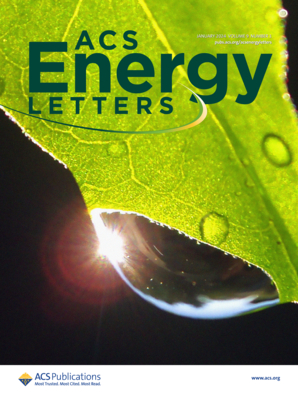改变社交媒体的激励结构可以减少在线代理的失败和负面情绪的扩散。
IF 19.3
1区 材料科学
Q1 CHEMISTRY, PHYSICAL
引用次数: 0
摘要
社交媒体利用人们容易关注威胁性刺激的特点,通过算法推广能吸引注意力的内容。然而,这些内容往往不是人们明确表示希望看到的。我们建议社交媒体公司在算法中更多地考虑用户表达的偏好。我们建议对用户界面进行适度修改,以减少网络环境中大量的威胁性内容。本文章由计算机程序翻译,如有差异,请以英文原文为准。
Changing the incentive structure of social media may reduce online proxy failure and proliferation of negativity.
Social media takes advantage of people's predisposition to attend to threatening stimuli by promoting content in algorithms that capture attention. However, this content is often not what people expressly state they would like to see. We propose that social media companies should weigh users' expressed preferences more heavily in algorithms. We propose modest changes to user interfaces that could reduce the abundance of threatening content in the online environment.
求助全文
通过发布文献求助,成功后即可免费获取论文全文。
去求助
来源期刊

ACS Energy Letters
Energy-Renewable Energy, Sustainability and the Environment
CiteScore
31.20
自引率
5.00%
发文量
469
审稿时长
1 months
期刊介绍:
ACS Energy Letters is a monthly journal that publishes papers reporting new scientific advances in energy research. The journal focuses on topics that are of interest to scientists working in the fundamental and applied sciences. Rapid publication is a central criterion for acceptance, and the journal is known for its quick publication times, with an average of 4-6 weeks from submission to web publication in As Soon As Publishable format.
ACS Energy Letters is ranked as the number one journal in the Web of Science Electrochemistry category. It also ranks within the top 10 journals for Physical Chemistry, Energy & Fuels, and Nanoscience & Nanotechnology.
The journal offers several types of articles, including Letters, Energy Express, Perspectives, Reviews, Editorials, Viewpoints and Energy Focus. Additionally, authors have the option to submit videos that summarize or support the information presented in a Perspective or Review article, which can be highlighted on the journal's website. ACS Energy Letters is abstracted and indexed in Chemical Abstracts Service/SciFinder, EBSCO-summon, PubMed, Web of Science, Scopus and Portico.
 求助内容:
求助内容: 应助结果提醒方式:
应助结果提醒方式:


